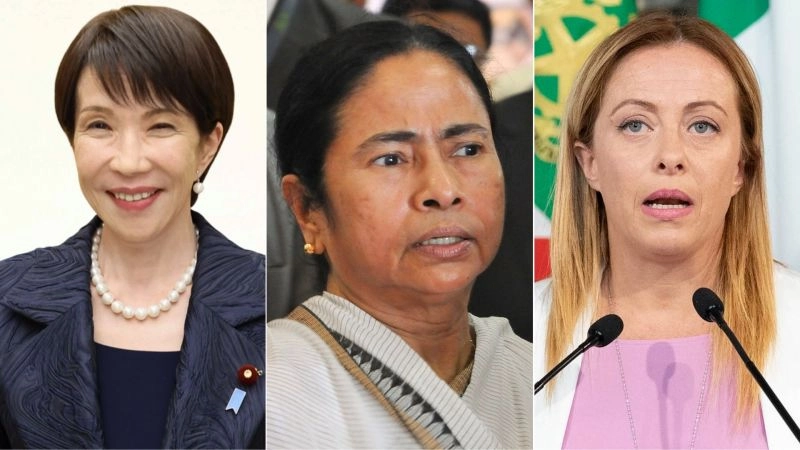
Sanae Takaichi or Jacinda Ardern? Earlier last month, Takaichi became Japan’s first female PM. A self-confessed admirer of ‘Iron Lady’ Margaret Thatcher, she has firm views opposing same-sex marriage or allowing married couples to use separate surnames.
In Europe, the tough stance of Italian PM Giorgia Meloni’s government on immigration is much talked about. Media organisation Politico described her as a “straight-talking alpha” and declared her the most powerful person in Europe in 2024.
In India, politicians such as West Bengal CM Mamata Banerjee embody a fighting spirit and defiant style of leadership, as did Mayawati and Indira Gandhi earlier. Banerjee drew flak for comments on women’s safety, but she’s lauded for her welfare schemes, grassroots connect and never-give-up attitude. “People underestimate me,” she once said, and that holds true for most women leaders.
Such leaders are decisive, at-times aggressive and confrontational, and project no weakness. The rise of strongwoman politics is attributed to economic volatility, public insecurity, need for reforms, and the influence of social media. Their appeal during uncertain times lies in presenting themselves as capable of handling challenges and restoring order.
It’s no coincidence that many of them admire Thatcher. The former British PM implemented strict measures, refused to back down on policy, and took decisions with minimal consultation.
However, just a few years ago, a different kind of leader was being celebrated. Finland’s former PM Sanna Marin and New Zealand’s former PM Jacinda Ardern were considered role models for speaking calmly but with clarity, reflecting their authentic selves to the audience, and their empathetic nature. As Ardern admitted in a Vogue interview, she made a conscious decision not to harden or reshape her persona when she entered Parliament at 28.
Strongwoman leadership may be trending today, but it can be a minefield as well. In the US, Kamala Harris and Hillary Clinton lost their respective presidential campaigns to gender bias. Apart from campaign issues, they were judged for their appearance, private life and coming across as too aggressive, ambitious, and unlikable to audiences.
The elephant in the room: If women need to imbibe masculine leadership traits to rise to the top, then are we really progressing? By playing by men’s rules and staying away from feminist politics, such leadership doesn’t change things structurally for women. In fact, leaders like Takaichi have policies that are regressive for women.
To reflect true strength, women need to develop a political style that doesn’t require them to lead like men or conform to feminine stereotypes, where they can be free to support fellow women as well. Equality can only be achieved if we judge women by results and not by living up to the male template.
